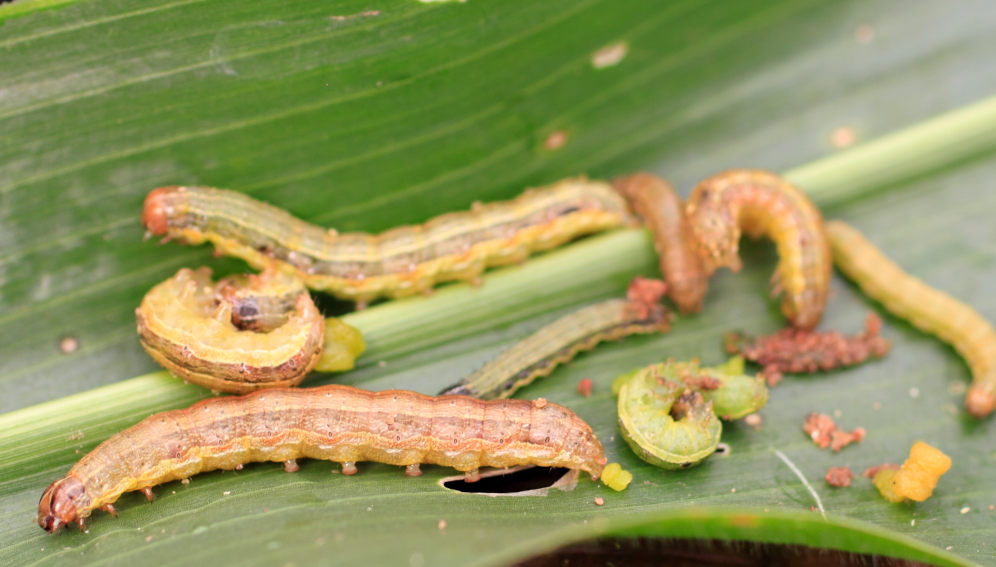Corn farmers across Egypt are struggling with widespread devastation of their crops this season, facing substantial losses due to the pervasive and formidable Fall Armyworm (FAW).
The FAW, a moth species native to the Americas, is a formidable agricultural menace worldwide. Its larval stage, characterized by uncontrollable caterpillars, inflicts severe crop damage, thus food security.
According to the Food and Agriculture Organization (FAO), the impact of this pest is particularly devastating in Africa, where it could lead to the annual loss of up to 17.7 million tonnes of corn. This potential devastation translates to an economic blow of USD 2.5 billion (EGP 120 billion) to USD 6.2 billion (EGP 298 billion), jeopardizing the livelihoods of millions and exacerbating the challenge of feeding tens of millions of people.
“We had previously issued warnings before its entry into Egypt. Now it has spread throughout the country,” Hussein Abdel-Rahman, head of the General Syndicate of Farmers, said.
According to Deputy Regional Representative for the Near East and North Africa of the Food and Agriculture Organization, Serge Nakouzi, many countries in the MENA region are grappling with significant challenges posed by FAW, which affects 80 types of crops.
The corn crop is at the top of the list of crops most affected by FAW. Its impact extends to rice, sugarcane, sugar beet, cabbage, soybeans, clover, cotton, tomatoes, and potatoes.
Originating in the tropical and subtropical regions of the Americas, the FAW has spread to over 54 countries across Africa and Asia since 2017. It entered Sudan in 2017, Yemen in 2018, and Egypt in 2019, and has since spread to Mauritania, the United Arab Emirates, Syria, and Jordan.
The FAW poses a great threat to crops in Egypt, with its speed reaching up to 100 kilometers per day, according to Abdel-Rahman. Known for its wide host range and high reproductive capacity, the female FAW lays approximately 2,000 eggs during its lifespan, lasting about 30 days in the summer and up to 90 days in the winter, he reported.
The Ministry of Agriculture and Land Reclamation stated on 20 May the importance of taking all necessary measures to control FAW by developing control strategies and updating technical guidelines for farmers and experts in this field.
The administration’s doctrine is rooted in the fact that last year’s FAW infestation did not exceed 7 percent, with no damage or crop losses reported, Ahmed Rezk, head of the Central Pest Control Administration, shared. However, the invasive pest is expected to alter its behavior and biological patterns, particularly amid extreme climate changes.
According to Rezk, the monitoring of the fall armyworm this season is being conducted under a strategy that relies on a set of executive points, including reviewing historical emergence data to track the pest in early crops, directing pest control engineers to regularly inspect and treat crops, and monitoring control activities through inspection committees.
Early warning systems are also activated by inspecting traps and conducting field examinations. The strategy also involves conducting field visits, reviewing control measures with engineers, and intensifying inspection campaigns on corn crops.
As Egypt battles the relentless spread of the FAW, the urgent need for coordinated efforts to safeguard the nation’s agriculture persists.







Comments (0)